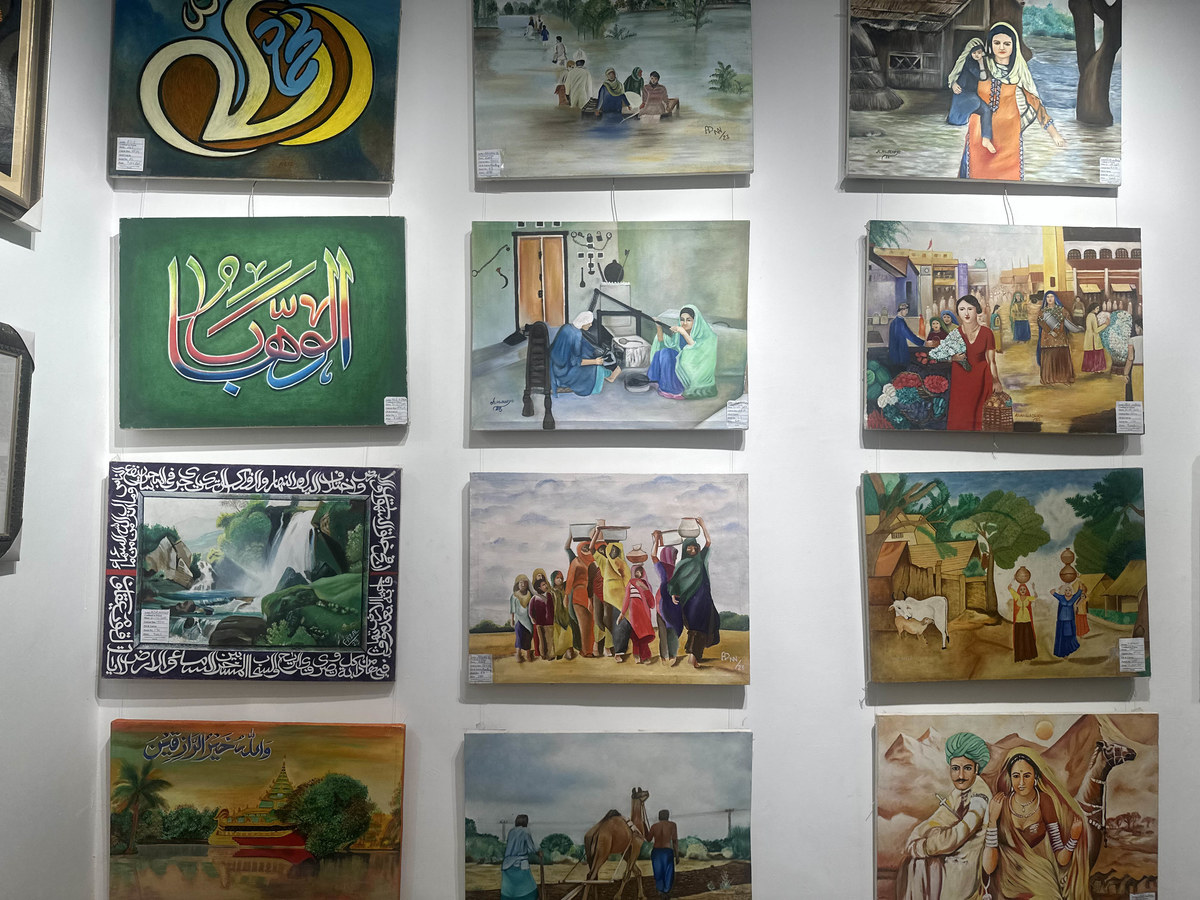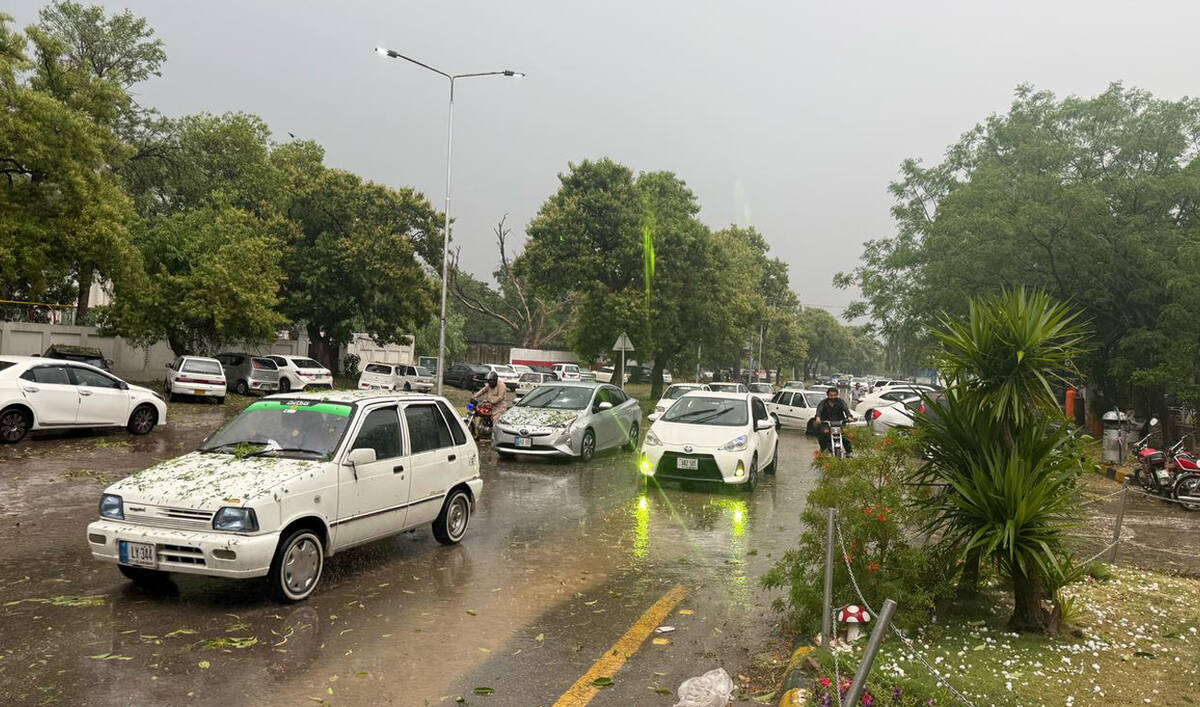KARACHI: A leading Pakistani art gallery unveiled a unique exhibition by prison inmates on Saturday, featuring meticulously crafted models of revered Islamic sites in the holy cities of Makkah and Madinah, as well as intricately designed bracelets and handbags for women adorned with exquisite beadwork.
The event was organized by the Arts Council of Pakistan in Karachi that aims to foster a sense of community through artistic expression and enrich the cultural landscape of the country.
The council received assistance for this endeavor from authorities at the city’s central jail, which launched the School of Fine Arts and Music in 2008.
The school offers painting, jewelry-making, and language-training classes, among other things, to its inmates.
“In these paintings, there is abstract art, impressionism, portraiture, landscapes, seascapes, and a fusion of embroidery and painting in a mixed-medium style,” said Husnain Raza, an art teacher and former inmate, in an interview with Arab News. “In this form, artworks are crafted through full embroidery and then embossed, resulting in what is called 2-D paintings.”

Artwork of prison inmates of Karachi central jail displayed at an art gallery in Karachi, Pakistan, on September 23, 2023.
Raza emphasized that beneath the visual allure of these artworks lie profound narratives built around the country’s cultural heritage and the personal stories of the artists.
Muhammad Yousuf, deputy jail superintendent, informed this was the first time an exclusive exhibition was held to display prisoners’ artwork.
“Our aim is to show people that jails are often viewed merely as places where crimes are punished, but we need to change it,” he continued. “Our motto is to change behavior. These [inmates] are members of our society, and we intend to send them back as changed individuals.”
The exhibition featured nearly 35 participating students, Raza added, noting that the artwork of three prisoners — Ejaz, Allah Wadayu, and Abdul Aziz — particularly stood out.
“Ejaz’s paintings were viewed as exceptional since they illustrated both cultural and abstract landscapes with his depiction of horses,” he said, adding that Allah Wadayu had also laid emphasis on the cultural dimension in his work.
“Abdul Aziz’s focus centered on the people left behind when someone is incarcerated: the women of the household, such as mothers, sisters, and wives, who anxiously await the return of their loved ones,” he elaborated.
Prisons across Pakistan are usually overcrowded and known for their less-than-ideal conditions.
Initiatives such as the one promoted by the central prison in Karachi along with the arts council can not only bring out the untapped creative potential within prison walls but also offer a more nuanced view of incarceration and justice in Pakistan.

















